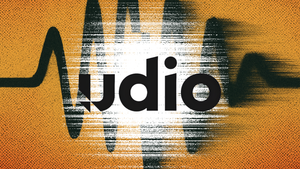Another day another AI copyright lawsuit, this time with a group of independent musicians in the US suing music AI company Udio. In their lawsuit, the musicians make the customary claims of copyright infringement and pre-empt Udio’s inevitable fair use defence, but also accuse the AI company of violating privacy and publicity rights provided by laws in the state of Illinois, where the lawsuit has been filed.
“This case challenges Udio’s practice of systematically copying and storing works by independent artists to fuel a commercial, mass-market music-generation engine”, the lawsuit begins.
Udio, it adds, “built its rapidly expanding commercial empire by disregarding the intellectual property rights of the artists it claims to support”, while concurrently creating and selling “a product that directly competes in markets where independent artists make their living”.
The major record companies have sued both Udio and Suno for copyright infringement, but are also known to be negotiating settlement and licensing deals with both companies alongside the litigation. If deals are ultimately done, that won’t help the millions of independent artists and songwriters whose music has also been copied as the two AI companies put together datasets to train their respective AI models.
“Unlike previous lawsuits filed by major music labels which primarily aim to protect the high-value catalogues of popular artists”, the new lawsuit explains, “this case emphasises the significant and unequal harm inflicted on independent musicians”.
“Independent artists constitute the majority of music creators but lack comparable financial protections”, it goes on. “They depend heavily on licensing revenue, royalties and recognition of their creative works, and they face especially severe impacts from Udio’s unauthorised use and market saturation”.
Suno has also been sued by an independent musician making similar claims, in that case Anthony Justice. The new lawsuit against Udio involves artists David Woulard, Stan Burjek, James Burjek, Berk Ergoz, Hamza Jilani, Maatkara Wilson, Arjun Singh, Magnus Fiennes and Michael Mell. Both lawsuits seek class action status, so they can represent all affected independent musicians in the US.
The lawsuit accuses Udio of infringing the copyrights in songs and recordings created and owned by the class members by copying music files into its training dataset without permission. It also separately accuses the AI company of infringing rights in the artists’ lyrics, by “scraping lyric content from sources like Common Crawl, which includes databases such as Genius, AZLyrics and Musixmatch”.
Like all AI companies accused of copyright infringement in the US, Udio will claim AI training constitutes ‘fair use’ under American copyright law, meaning it didn’t need permission to make use of the artists’ music and lyrics. The lawsuit pre-empts that argument insisting AI training is not fair use.
Of course there have already been two rulings in lawsuits filed by book authors where judges concluded that AI training was fair use - but with some important creator-friendly asides.
In one case the judge said fair use would not apply if an AI company curated content from piracy sources, and in the other the judge said a fair use defence might fail if creators can show that a generative AI model causes market dilution that negatively impacts on their ability to make money from their work.
In the new lawsuit, the artists argue that Udio both curated its content for piracy sources and is causing market dilution. They state, “Udio obtained many of the copyrighted sound recordings in its training set by illicitly downloading them from YouTube using ‘stream-ripping’, a well-known method of music piracy”.
Meanwhile, they add, Udio’s music AI product is negatively impacting artists through “lost syncs and reduced sync quotes”, “reduced licensing volumes and rates” in the production music and beats markets, declining streaming royalties and playlist placements “coincident with Udio’s releases and creator-tool integrations”, and lost commissions “where Udio outputs were used in place of hiring human creators”.
Together, the artists argue, these negative impacts constitute “market dilution at scale” and the kind of harm that is recognised by copyright law in the guidelines for assessing whether or not a use is fair use. Such market dilution, they insist, “weighs decisively against” Udio’s inevitable fair use defence.
Beyond the copyright claims, the artists also make some interesting allegations regarding privacy and publicity rights. They claim that Udio “collected, stored and exploited biometric identifiers and voiceprints derived from human performances” without adhering to legal safeguards required by the Illinois Biometric Information Privacy Act. And that it “misused artists’ voices and identities for commercial gain without permission” in violation of the Illinois Right Of Publicity Act.
So, both familiar and novel claims from the artists to which we now await Udio’s response.

